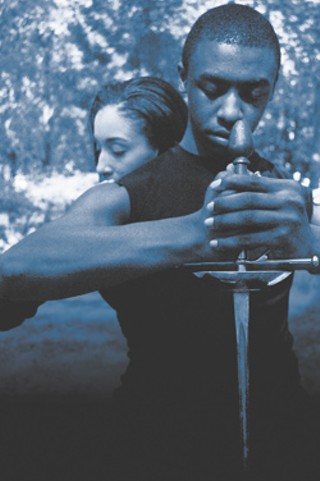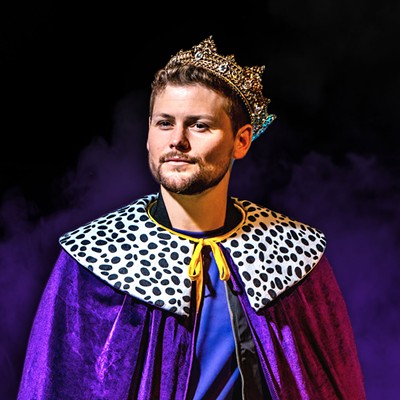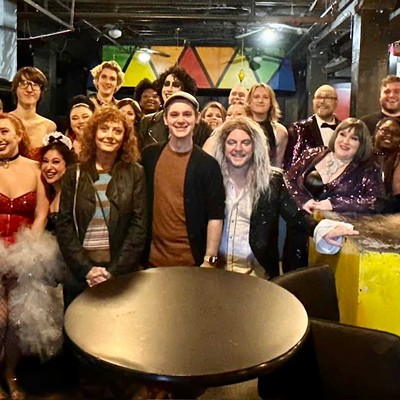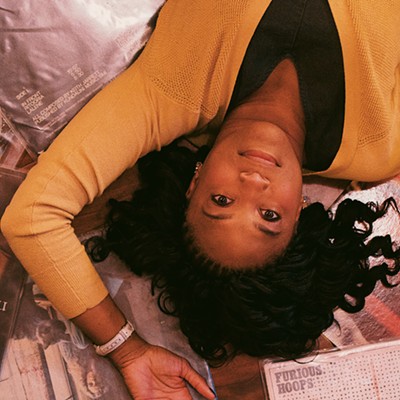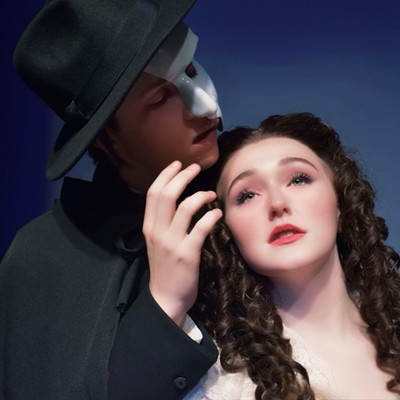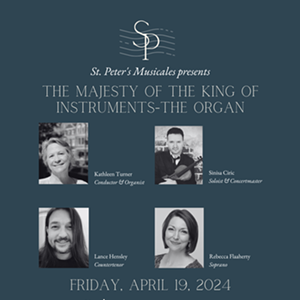NOTABLE IN 2007 only for its absence, the beloved Savannah Shakespeare Festival returns to Forsyth Park this weekend with a new attitude and an entirely different focus.
In a possibly controversial decision, the Festival will not feature a full-length production of one of the Bard’s classic plays, as in year’s past. It will instead comprise a collection of related scenes, all revolving around a single theme: Love.
“When we first started bouncing around ideas for this, I just tossed ‘love’ out there as a for-instance,” recalls festival executive director Jin Hi Soucy Rand. “But I actually set myself up for a really good thing because now I get to talk about love every day (laughs).”
However, that’s not the most ambitious or even the most unique aspect of this year’s Shakespeare Festival. Perhaps most importantly in the long run, the event is a collaborative effort involving nearly every single theatrical group in town, including: Abeni Cultural Arts; All Walks of Life (AWOL); City Lights Theatre Company; Ensemble Con Spirito, Little Theatre of Savannah; Cardinal Rep; Savannah Children’s Theatre; and Spitfire Poetry Group.
“I was kind of staggered by the idea of it,” says Ryan McCurdy, artistic director of Cardinal Rep (formerly Savannah Actors Theatre).
“I think the jump to this idea was twofold: Jin Hi being an enormous supporter of theatre going back to her years with City Lights, she’s always been very connected with everyone’s programming. She was seeing that all this good vibrant work was going on,” says McCurdy.
“On the other hand, the city really wanted a Shakespeare Festival to happen. Where everybody married on this idea was when Jin Hi said in a meeting that what has recently not worked was having a sole producer doing a full-length play.”
According to McCurdy, at that early meeting Soucy threw out the suggestion that the production would be easier if local groups could diversify the workload as much as possible.
“That’s where we got this chunk-sized Shakespeare, with no scene longer than seven or eight minutes. One scene is only a minute and 45 seconds,” says McCurdy. “This will be more of a Saturday Night Live version of Shakespeare, where if you don’t like it in a few minutes it will change (laughs).”
Here’s a sampling of what to expect:
Scenes from Othello by Abeni Cultural Arts; a hip-hop influenced Romeo and Juliet by AWOL (All Walks of Life); scenes from The Two Gentlemen of Verona and A Midsummer Night’s Dream by Savannah Children’s Theatre; selections from Twelfth Night, Taming of the Shrew, Macbeth and Midsummer Night’s Dream by Cardinal Rep ; Little Theatre of Savannah will have excerpts from Much Ado About Nothing and Hamlet.
As you can see from the program, not only will the workload be diversified, the players will be as well. Included in the mix are several predominantly African American ensembles from different traditions that have had very little, if anything, to do with previous local Shakespeare productions.
“We’re going to add a different take on what is already a classic, done by people who are not necessarily actors but have a background in spoken word,” says Clinton Powell, cofounder of Spitfire Poetry Group and a well-respected spoken word artist in his own right. “We’ll also be going against typecast as well.”
Powell says Spitfire artists will be collaborating with dancers from the local dance troupe Abeni Cultural Arts.
“They’re going to use Othello’s words as a backdrop for dancing by Abeni. For example, you may have one scene where someone’s singing and then as a backdrop someone is doing one of Othello’s monologues.”
Another key local spoken word group, AWOL, will be doing a scene at the Festival as well.
Powell says the improvisational world of spoken word will not be at all out place in a Shakespeare production — indeed, he says, it will add to the richness of the experience.
“Jin Hi wanted folks to do an interpretation, and other folks wanted to do the actual text,” he says. “Most of our people aren’t actors, and definitely aren’t Shakespearean actors. They’re spoken word artists, and they’re going to be using Shakespeare’s words, and I’m going to be giving them direction as to where to take it. You’ll feel the heightening with the dance and the words coming together.”
For Soucy Rand, an emphasis on diversity was less an exercise in political correctness than a common-sense acknowledgment of simple fact.
“The diversity is there in our performing arts. I go to see it all, and it’s there for everybody. The diversity in this show reflects the diversity of the artists in our community.”
Soucy Rand says the somewhat radical idea of involving so many disparate groups was a natural outgrowth of her own experiences in local theatre.
“Because I was involving all these different organizations and each organization has its own style and own dynamic and own way of doing things, I wanted to allow that to a certain extent. And to do that we gave them a common theme and a common writer, and let them express themselves in their own style.”
One of the challenges of the revue-style production was to find moments from Shakespeare that would be instantly familiar to audiences, but not necessarily the very first things they would think of.
“For instance, the balcony scene from Romeo and Juliet doesn’t appear anywhere in this presentation,” says McCurdy.
“The thing that links all of our scenes together is that they’re the most heightened moments of love-based emotion in that particular play. We’ve tried to isolate where everything reaches a fever pitch,” he says. “My favorite description of love by Shakespeare is ‘a madness most discreet.’ I thought that was a nice way to cap a scene.”
For the city of Savannah, for many years the primary sponsor of the Shakespeare Festival, this year’s production is important because it continues to reinforce the city’s commitment to supporting the arts.
“For years City Lights Theatre did an admirable job of putting together the production,” explains Eileen Baker, executive director of the city’s Cultural Affairs Department. “The audiences grew and the festival expanded beyond the squares, where they originally put on the production, into Forsyth Park. In 2005 City Lights decided they could no longer put on their production nor could they keep their theater company alive.”
At that point, the city’s approximately $50,000 annual grant for the festival was given to a startup called the Savannah Shakespeare Festival, Inc., which applied for the grant in the wake of City Lights’ demise.
“Unfortunately they staged their performance in November 2006 on one of the coldest days of the year,” Baker says. “November is not something the community thinks about when they think about outdoor festivals.”
While Savannah Shakespeare Festival, Inc., indeed applied for a second grant in 2007, Baker received a letter in spring of that year saying the group would be unable to put on a festival.
“So the decision was made to not have an event in 2007, and to carry those funds forward to 2008,” says Baker, referring to the $44,500 that will pay for this weekend’s Festival.
“It was my opinion as well as others in the theatre community that perhaps the festival needed to find an identity,” Baker continues. “Fortunately we’ve got about six new startup organizations in Savannah now. They’re small, but they’re growing, and they all have their own audiences and styles. So we thought, what a great opportunity to showcase those styles to the public.”
Anyone who’s dealt with creative people for any length of time knows that it can be like herding cats. But for whatever reason — whether it’s the undying appeal of Shakespeare, a new attitude on the part of local theatre groups, or both — the whole process has come together beyond anyone’s dreams.
“Somewhere in the last two years or so, everyone in town started playing nice,” reflects McCurdy. “No one’s running with scissors, everyone’s sharing. And now, all the theatres are recognizing that this festival is a great opportunity that can only do us good, at no expense to us.”
Soucy Rand echoes that, saying “each group has a very specific mission and a specific service they provide. I don’t think it’s been competitive.”
The hope for this year’s Festival is that it will have a trickle-down effect for all the groups during their regular seasons.
“This fulfulls a certain need to let the public know that theatre in this town is happening all the time,” she says.
“If people are seeing ten shows a year, they’re not even seeing a fifth of what’s going on,” says Soucy Rand. “The word needs to get out that there are these different organizations in town. This festival will truly be a celebration of theatre in Savannah and of Shakespeare.”
Savannah Shakespeare FestivalA collection of scenes by local performing arts groups, all around the theme of love.When: 8 p.m. Sat. May 17, open dress rehearsal 8 p.m. Fri. May 16 Where: Forsyth Park Cost: Free. Info: www.savannahga.gov/arts

